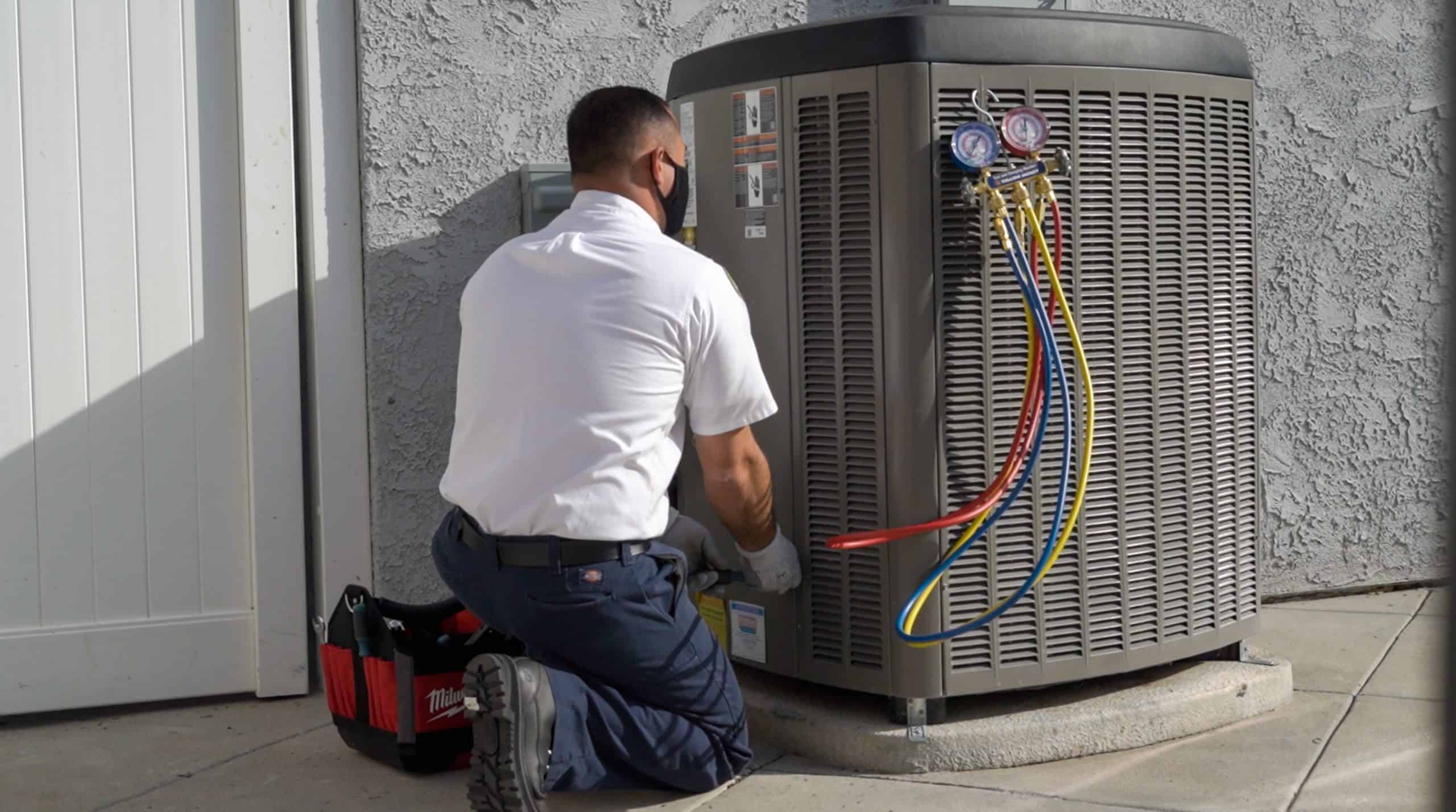Affordable Maintenance Plans with DMAKS HVAC for Your HVAC System.
Affordable Maintenance Plans with DMAKS HVAC for Your HVAC System.
Blog Article
Energy-Efficient Heating And Cooling Systems to Save on Utility Bills
As power expenses continue to increase, the importance of energy-efficient cooling and heating systems ends up being increasingly evident. These systems not only guarantee significant financial savings on energy costs however likewise contribute to a more sustainable future by lessening power usage. With numerous choices available, consisting of geothermal heat pumps and ductless mini-splits, building owners deal with a multitude of choices that can improve convenience and air quality. Nonetheless, recognizing the vital attributes and maintenance requirements is necessary to maximizing these benefits. What aspects should be focused on when choosing the ideal system for your needs?
Advantages of Energy-Efficient A/c Equipments
Energy-efficient a/c systems offer numerous benefits that expand beyond simple price financial savings. One considerable advantage is the reduced environmental influence. By taking in less energy, these systems add to lower greenhouse gas discharges, helping to deal with environment change and advertise sustainability. This straightens with boosting social needs for environmentally friendly techniques in household and business setups.
In addition, energy-efficient a/c systems typically supply boosted convenience degrees. A number of these systems include sophisticated innovation that enables much better temperature control and boosted air quality (DMAKS HVAC). This brings about a much healthier interior environment, which is particularly crucial for people with allergies or respiratory problems
In addition, purchasing energy-efficient HVAC systems can improve residential property value. As more consumers focus on power efficiency, homes and buildings furnished with these systems may bring in greater bids in the realty market.
Types of Energy-Efficient HVAC Options
Just how can home owners and businesses select the most suitable energy-efficient HVAC alternatives for their requirements? The market uses a range of energy-efficient heating and cooling systems, each developed to boost convenience while minimizing energy intake.
One choice is the variable cooling agent circulation (VRF) system, which successfully regulates the temperature in multiple areas within a building. This system adapts its refrigerant circulation to match the desired temperature level, causing considerable energy financial savings.
One more preferred option is geothermal heatpump, which use the planet's steady temperature level to warm and amazing rooms. By transferring warmth to and from the ground, these systems demonstrate excellent performance, specifically in modest climates.
Furthermore, ductless mini-split systems supply an energy-efficient option for homes doing not have ductwork. These systems enable zone-specific cooling and heating, minimizing energy waste in vacant locations.
Lastly, high-efficiency heaters and ac system, with advanced SEER and AFUE scores, supply reputable environment control while consuming much less power than conventional designs. By reviewing these options, property owners and services can choose a HVAC system customized to their particular requirements and power performance objectives.
Trick Attributes to Take Into Consideration

Next, explore the type of compressor made use of in the system. DMAKS HVAC. Variable-speed compressors can change their output to match the home heating or cooling down demand, leading to improved convenience and energy financial savings compared to single-speed designs. Furthermore, seek systems geared up with wise thermostats that supply programmable setups and remote gain access to, permitting much better control over power consumption
An additional critical attribute is the system's air purification ability. High-efficiency look at more info filters can boost interior air top quality and lower power intake by guaranteeing the system operates effectively. Additionally, think about the kind of refrigerant used; contemporary systems frequently utilize environment-friendly refrigerants that have a lower ecological influence.
Lastly, make certain that the system is compatible with zoning modern technology, which enables customized temperature level control in various areas of your home, enhancing comfort while minimizing power usage.
Tips for Choosing the Right System


Following, think about energy efficiency rankings, specifically the Seasonal Power Performance Proportion (SEER) for cooling down systems and the Yearly Gas Application Performance (AFUE) for heater. Higher ratings indicate greater efficiency, which can result in considerable savings on utility expenses over time.
Furthermore, examine the sort of a/c system that ideal matches your way of check it out life and budget plan. Options include central air, ductless mini-splits, and heatpump, each with its very own collection of benefits and downsides.
Don't ignore the significance of proper installation and sizing; an improperly sized system can cause inefficiencies and increased wear. Consult with an expert HVAC specialist to obtain professional recommendations customized to your home's distinct demands. This comprehensive strategy will make sure that you choose an energy-efficient heating and cooling system that meets your requirements and spending plan efficiently.
Upkeep for Optimum Efficiency
Once the ideal cooling and heating system is in location, continuous upkeep comes to be key to guaranteeing optimum performance and longevity. A well-kept system runs better, leading to reduced power intake and reduced utility expenses. Routine examinations and tune-ups should be scheduled at the very least two times a year-- as soon as prior to the cooling season and as soon as prior to the home heating period.

Homeowners need to additionally be cautious regarding checking their a/c system's performance. Uncommon noises, changing temperatures, or raised power bills can show underlying problems that call for prompt attention. By dealing with these concerns immediately, house owners can prevent pricey repair work and expand the lifespan of their systems.
Purchasing an upkeep strategy with a qualified professional not only boosts performance but likewise gives comfort, knowing that the system is operating at its finest. DMAKS HVAC. Normal upkeep is for that reason crucial for sustaining energy effectiveness and lowering overall functional prices
Verdict
In conclusion, energy-efficient HVAC systems provide a feasible remedy for reducing utility bills while improving convenience and air top quality. By incorporating advanced modern technologies and options such as geothermal warm pumps and ductless mini-splits, building owners can accomplish substantial power savings and add to ecological sustainability. Mindful factor to consider of system features and continuous maintenance additionally makes certain optimal performance, making energy-efficient systems a sensible financial investment for both economic and ecological benefits.
Report this page